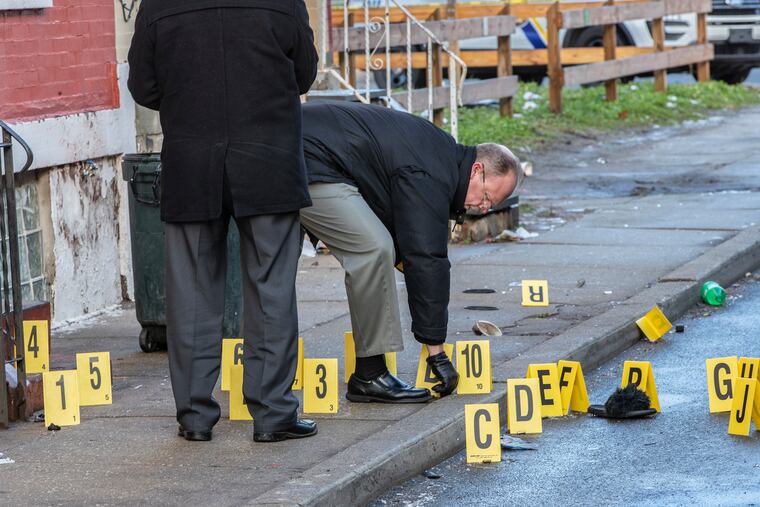Philly’s gun violence solutions require state and city funding | Opinion
Anti-violence programs should be paid for by the representatives of those who have the most to gain.

There are myriad approaches to reducing gun violence — and urgent reason to do so. This past weekend, Philadelphia saw gun violence wound eight more people and kill two. Regardless of your position on how to handle the crisis, we can agree there is no magic potion to protect our communities.
Well-intentioned solutions, passionately put forth by victims, survivors, community leaders, grassroots organizations, researchers, law enforcement, religious leaders, and more, all too often push the conversation into a place of division and reaction rather than action. Check the video of recent state regional hearings on gun violence and you’ll see how raw the conversation becomes when gun violence is discussed.
We are not here to say what is a right or wrong way to solve this crisis. That is up to others to decide.
We are joining the conversation today to show that while the day-to-day work of fighting violence might be best done at the community level, we do not believe the funding portion of this battle belongs in the hands of private entities. The philosophy behind Cure Violence, an anti-violence-program, is that gun violence is a health-care crisis. In the past, private entities like health-care insurers have funded responses to health-care crises. That approach won’t work here.
We come to this conclusion through analysis supported by a financial modeling tool created by our Fox Management Consulting team of Temple University MBA students overseen by a business project executive. Funding to end the gun violence crisis in our communities should come from city and state coffers because, quite frankly, they feel the economic pain for many of the downstream social and economic costs associated with gun violence. They are also in the position to press private companies to contribute as appropriate.
Our financial modeling tool shows that, given current reimbursement patterns, the economic return on investment for preventing gun violence is negative for insurance companies and hospitals. But the economic return on investment — e.g., the money saved — for preventing gun violence is positive for Pennsylvania’s Department of Human Services (DHS) because it channels Medicaid funding to all the managed care organizations. Add in social costs — such as lower wages and quality of life, which can lead to homelessness, mental health issues, and incarceration — that DHS has to bear due to gun violence, and the combined economic and social impact of investment in prevention grows dramatically.
The model points to this conclusion by taking into account expenses for the primary and secondary health costs associated with treating gunshot wound victims, as well as the 30% reduction of reported shootings in the police precincts where Philadelphia Cure Violence operates (with support of Temple University’s Lewis Katz School of Medicine).
We have read the Inquirer Editorial Board urging the city to learn an important lesson from what’s going on in Chicago, the birthplace of the Cure Violence program. Homicide rates in the Midwestern city have reportedly declined over the past three years. We note that Chicago is paying attention to the data, and using that data to drive funding decisions. We hear Mayor Jim Kenney’s call to reduce shootings in the city by 25% and homicides by 30% over the course of his term in office. And we can see that Philadelphia’s evidence-based, public-health-oriented Cure Violence program has previously achieved the 30% reduction in the neighborhoods in which it operates.
But our research shows that in order for community- and evidence-based organizations like Cure Violence to thrive, and for Philadelphia to reduce violence as much as Chicago has, funding for a proven program needs to come from the state and city. That dedicated stream is the lifeline that will allow evidence-based programs to expand neighborhood by neighborhood, continuing to hire members of the community.
There’s no magic in data. It speaks for itself.
TL Hill is a professor of strategic management and managing director of Fox Management Consulting and Executive Education at Temple University. Donald Phillips is an adjunct professor in the Fox School of Business at Temple.